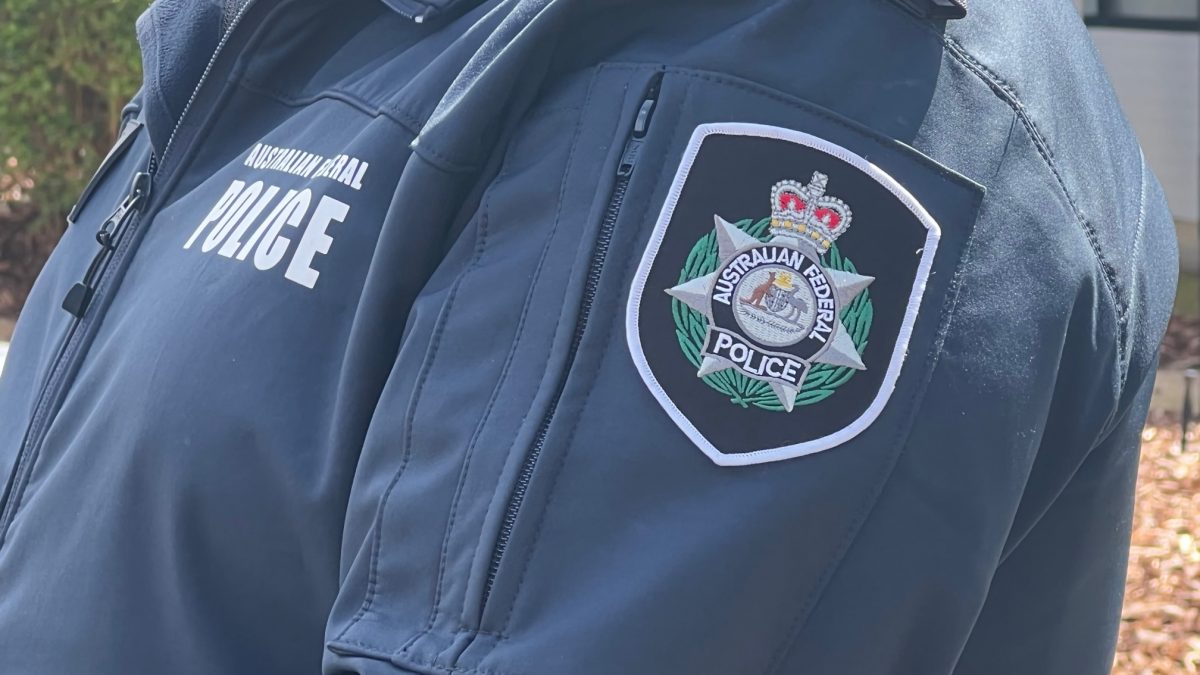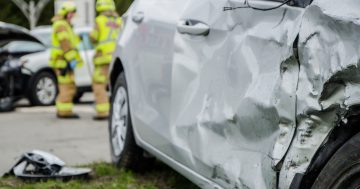
Officers currently have to prove a person was riding or driving in a stolen motor vehicle if their forensic evidence is found at the scene. Photo: Claire Fenwicke.
A new motor vehicle crime could soon be established in the ACT to cover a legal loophole and bring the territory in line with other jurisdictions.
A Committee Inquiry will examine the potential new offence “unauthorised entry of a motor vehicle without reasonable excuse”, which was introduced in the Crimes Legislation Amendment Bill 2022 in the Legislative Assembly on 23 November.
While “taking a motor vehicle without consent” exists in the ACT’s Criminal Code 2002 (section 318 (2)), it requires the prosecution to show the defendant was driving or riding in a stolen motor vehicle.
However as was determined in the case of R v Carpenter, before the ACT Supreme Court in 2019, proof a defendant was in a motor vehicle (such as DNA) was “insufficient” to prove they were actually riding or driving the vehicle without an owner’s permission.
Attorney-General Shane Rattenbury said this new offence aimed to close that loophole.
“The ACT Government had received feedback from ACT Policing that there was a gap in the law, when they could prove a person had been present in someone else’s car but couldn’t prove they had stolen it,” he said.
“This offence recognises that unauthorised entry to a motor vehicle is unacceptable and wrong, and there needs to be a legal response.
“The new offence of unauthorised entry of a motor vehicle in the Bill addresses this issue by only requiring the prosecution to show that the defendant entered the motor vehicle, not that they were ‘driving’ it or ‘riding’ in it.”
The maximum penalty being considered for this new offence is a $1600 fine, which Mr Rattenbury said corresponded with the “lower level of culpability” required to prove the offence.
ACT Policing has welcomed the move.
“As the courts have ruled that the presence of a person’s DNA is not necessarily enough to support a charge of ride in or drive stolen motor vehicle, police believe this new offence better reflects community expectations by making it unlawful for someone to be in a vehicle that isn’t theirs without a reasonable excuse,” they said.
“The introduction of this new law is consistent with other jurisdictions, and we look forward to continuing to work with government on further legislative reform in the road safety and dangerous driving space.”
But while the offence is a positive, not everyone agrees with the proposed penalty.
The Australian Federal Police Union feels imprisonment is a far more appropriate punishment.
A spokesperson said this new offence would help police present more charges to the courts in relation to stolen motor vehicles.
“Before the ruling, if forensic evidence such as DNA or fingerprints were found in a stolen motor vehicle, police may charge the owner of the forensic material with ride/drive stolen motor vehicle (SMV),” they said.
“In many cases, police don’t catch the driver/rider of a stolen motor vehicle and rely on forensic evidence to place them inside the vehicle, but we also know an offender that breaks into cars doesn’t steal or break into just one car.
“Typically, SMV offenders are recidivist offenders who commit further crimes with SMVs.”
But the union argued a monetary penalty didn’t reflect the seriousness of the offence, or give any flexibility to the courts when it comes to sentencing.
“A person could have their fingerprints located in 50 stolen motor vehicles, and all a magistrate can do is impose a fine upon a court determination or plea of guilt,” the AFPA spokesperson said.
“The penalty also ensures that a person will receive bail, and it won’t matter if their forensic material is found in 100 SMVs.
“The AFPA believes the penalty for unauthorised entry of a motor vehicle needs to include an imprisonment penalty for the judiciary to consider.”
Mr Rattenbury said the government was also considering a more serious offence in this realm which could “encompass a higher level of culpability” and thus carry a higher maximum penalty.
This is the only element of the Crimes Legislation Amendment Bill 2022 which will be examined by the Committee Inquiry, along with the whole of the Road Safety Legislation Amendment Bill 2022.
Justice and Community Safety Committee Chair Peter Cain said only one element of the Crimes Legislation Amendment Bill 2022 was chosen to be examined as it related to the work already being done as part of the dangerous driving inquiry.
















